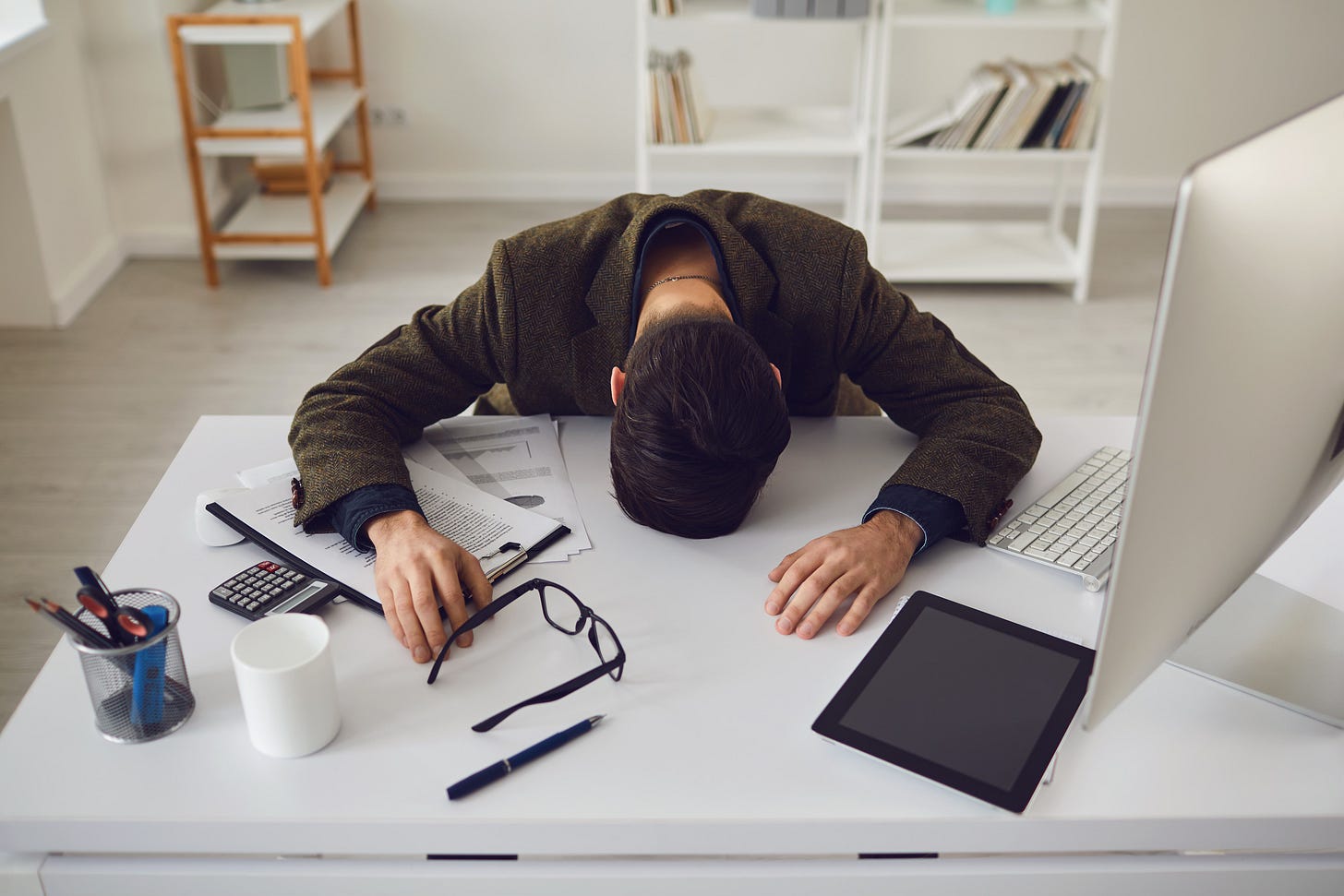Pondering What Recovery Is While I Recover….
What Is Recovery? And Why There's a Recovery Paradox....
Thank you, Everyone, for bearing with me as I went on a longer hiatus than I had planned. I came down with some weird virus in early December, and then I seemed to have come down with a secondary bacterial infection I couldn’t kick for about three months. (Yes, I had antibiotics, chicken soup, tea, etc.) By late February, I was feeling nearly as isolated as I’d been during Covid, and I realized I had to take some time off to get well.
Last weekend, I had been looking forward to getting back to Sherwood—then I promptly relapsed. Fortunately, I was only sick for a couple days, but the last thing I want to do is be sick again. (Again, thanks for the patience.)
I’m getting better each day—knock wood!—but not yet 100 percent, so I thought we’d tackle recovery. Not from being sick or from trauma, but just the ebbs and flows of life.
Understanding Recovery
Compared to mountains of research on other psychological phenomena, recovery has only recently been getting scholarly attention.
First, while most of us (and previously, scientists) think of recovery as an outcome (c.f., the above “I’m almost all well now!”), it’s better thought of as a process where someone recognizes they are performing below normal due to stress, and they’re trying to get away from that stress and return to a baseline level so they’re once again in control of their performance.
Also, recovery can be thought of in terms of immediate needs (literally stopping to catch your breath), short-term (between exercise sets), and longer-term (between training days or competitions).
Recovery practices adopted as a regular practice in your day are more effective. Take a sabbatical if you need to (and can), but it’s better not to have gotten to that point in the first place.
Primary keys to mental and physical recovery from general life stress seem to be: physical exercise; the ability to psychologically detach one’s self (from work), having experiences of mastery/autonomy, and sleep.
These of all have interesting twists. For example, studies have shown that physical exercise helps people handle stress, but still other research has found it can be hard to physical exercise after being cognitively taxed.
Detachment at work can help people feel better but not necessarily perform better. And more serious degrees of detachment have been also linked to depression.
At the same time, there’s no guarantee that physical rest will help with mental recovery, and assuming it will can even backfire.
For example, we might tell an exhausted employee to knock off from work early, to go get some rest. So they call it and leave. But they are so worried about work that they have insomnia, ending up even more tired and frazzled the next day.
Ironically, they might have had done better if they’d stayed at work to accomplish an important task. Because having finished it might help them retain the sense of control they were looking for—i.e., they recovered.
Over the long term, it’s probably not a productive strategy since it could lead to burnout, physiological issues, and more. But for a quick, immediate need of recovery, “work more” may occasionally be a coping strategy.
Your Mileage May Vary: Individual Differences Are Real, But Be Skeptical About a Favorite Recovery Technique (Even Your Own….)
Earlier this year, researchers published some results from a German nine-year-long research initiative looking at physical recovery relating to sport. These scholars found there is very little research to support the efficacy of physical recovery techniques such as precooling, percooling, cold water immersion, massage, and foam rolling. Interestingly, though, the research team said that, on a group level, the results were “trivial,” but they allowed that “certain athletes may derive greater benefits from a specific recovery strategy than others.”
Along with the individual differences, there could be contextual factors (e.g., weather, type of sport, amount of exertion) that make recovery techniques more or less effective.
The researchers also cautioned that belief was a huge factor, pro and con. Though the researchers didn’t directly address the power of placebos, they did say,
[W]e also demonstrated that even if an individual perceives a recovery technique as beneficial, it could still be trivial or even detrimental. Therefore… the effectiveness of recovery strategies for an individual athlete should be examined at both subjective and objective levels…. [and] need to be observed in replication to be identified as a true individual response pattern and thus meaningful.
In other words, Recoverer Beware.
(For those wanting to see the researchers’ papers on any specific technique, check out this paper about REGman.)
Quick Shots
In a modern study examining bacterial cultures of those who had died during the Spanish Flu pandemic, researchers concluded that more than 90% of them had died due to a secondary bacterial pneumonia that they’d caught while having the Flu. And still other research has revealed that, during subsequent pandemics, including Covid, the ill have been much more likely to die if they had a secondary infection.
People who have higher job stressors have poor health. And people with poorer health have higher job stressors. So there seems to be a reciprocal, causal relationship between work stress and poor health.
In a 2018 study of 20,000 German workers, 22% said they had trouble detaching themselves from thinking about work.
44% of workers don’t feel fully recovered from the previous day when they get back to work the following day.
The “Recovery Paradox”
University of Mannheim’s Sabine Sonnentag has argued there’s a “recovery paradox,” in that the people who are really exhausted/stressed/depleted need recovery the most. However, they often end up getting even less recovery.
Those who are the most stressed and in need of rest are the ones who end up losing the most sleep over work. They’re working late. They’re lying in bed thinking about what they didn’t get done and then they’re dreaming about what they’ll deal with tomorrow.
At the same time, someone who is cognitively/emotionally/physically depleted may not have the energy (or, depending on the researcher, the ability to self-regulate), to do things that will help them get better. Instead, they’re doing things they think help them function but only end up making things worse. They pound caffeine to stay awake and then can’t go to sleep later. They stay home because they can’t deal with people right now. But it’s spending time with friends that would’ve pulled them out of their funk. And so on.
In Your Sight
Because the need for recovery can be so situational, what works for one person on one day may not work for them on the next.
Researchers used to distinguish between recovery at work—taking a break—and away from work (leaving to go home). But with constant connectivity, a team of researchers from Monash University argue that “being at work” is whenever you view yourself as subject to having to respond to an organization’s goals.
Recovery strategies can be both passive (sleep, be a couch potato) and active (meet friends, pursue a hobby).
In a study of entrepreneurs, those who didn’t detach from work were more creative. But the key seems to be that they’re constantly generating new ways to solve problems, which keeps them doing just that. So a late dinner with colleagues hashing out ideas on how to make the company even better is rejuvenating. (On the other hand, an evening spent ruminating—emotionally talking about how terribly things are going—is depleting.)





Great article. Feel better, Ashley